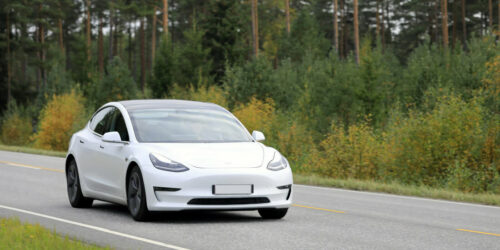How Far Can an Electric Car Go?
Which EV Has the Longest Range?
- What’s the average range of an electric vehicle?
- What factors affect EV range?
- The longest range EV
EV range is a topic that often comes up in conversation and technology is only ever improving electric car distance over time. As batteries become more efficient as the years go on and costs come down, it makes the choice to go electric more affordable.
In order to find out which is the longest range EV, it’s important to consider several points first. This article will look at the typical range you can expect from an electric car, what affects their total distance achieved and how efficiency can be reduced over time. It will also look at the longest range electric cars currently on the market.
Want to install an EV charger at home? Use our quote comparison tool to find out how much you'd pay. It only takes a minute.
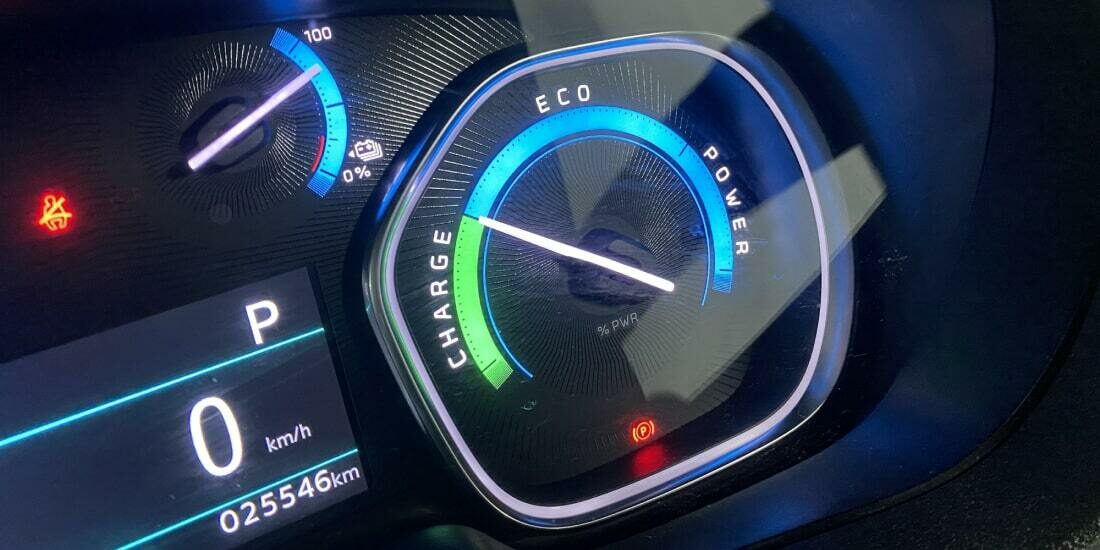
What's On This Page?
Click the links below and head straight to a specific section of the article.
Electric Cars Are the Future
In 2035, the UK Government will put a ban on all new petrol and diesel cars. By 2035, all news cars and vans will have to have no exhaust emissions, which means that car manufacturers will have to embrace the electric age of cars, as will the public. Electric vehicle adoption has increased in the last few decades but many question what are the longest range EVs and what is an EV’s expected range?
How Far Can Electric Cars Go On a Single Charge?
Some people are put off by going electric because the range doesn’t seem high enough for them. Do people always need the longest range electric vehicle on the market? It begs the question of whether people really need to go 300 miles on a single charge. As the technology has got better over time, the price of EVs has declined and the infrastructure is starting to take shape. It’s estimated that as many as 145 million EVs could be on the road by 2030.
The average car journey in the UK is around 10 miles. You can easily cover a whole week’s worth of commuting before you need to recharge an EV if this is the case. More and more public charging points are appearing year on year and home chargers can be fitted to alleviate any worry about finding a charger that’s available. Even if you don’t have the longest range EV, you can be sure that you’ll finish your journey.
There’s also a lot less wastage with EVs. Electric vehicles are more efficient than traditional internal combustion engines. Even the longest range EV can use 90% of the energy it produces to move. Combustion engines, on the other hand, are around 20-30% efficient at changing energy into motion.
Typical EV Range
The average range of an EV is between 100 and 300 miles, but the longest range EV is capable of over 400. On paper, this may not sound like much, as some petrol cars are capable of going beyond 1,000 miles on a single tank of fuel, but the technology has vastly improved since its inception. The UK’s first electric milk floats could only go as far as 40 miles and at a max speed of 20mph. Whereas, with the longest range EVs nowadays, you can achieve speeds exceeding 100mph and see ranges edging closer to 500 miles.
EV Range Anxiety
Is range anxiety a legitimate concern when it comes to choosing an EV? This is where people are worried that they may not be able to complete their journey. According to EDF, though, there are over 42,000 charge point connectors across the UK, which means that any journey should not cause you anxiety. Thankfully, you can charge your EV while you’re busy doing something else, such as shopping or having lunch, which means it shouldn’t be so much of an issue.
Installing a home EV charger is the cheapest and most effective way to charge your car, especially if you don’t have the longest range EV. If you don’t have a drive either, you can always borrow your neighbour’s charger when they’re not in to top up your total electric car distance. As long as they’re renting their charger out using one of the various EV charging apps, you won’t have to worry about running out of charge (or using their electricity).
Having said this, the furthest distance may need to improve before we start to see a significant uptake. A recent survey from RAC found that people want the average EV range to get to 375 miles before they make the switch to electric. Fortunately, if you’re looking for the longest range EV available, there are a few on the market that are able to exceed this desired range, which we cover at the end of this article.
What Factors Affect Electric Car Distance?
EV batteries have become cheaper and more powerful, especially in the last decade. They’re starting to reach price parity with petrol and diesel vehicles, which will effectively make them as competitively priced. It’s been expected the cost per kWh will get below £75. But even though this will make them more available, how does this impact their performance?
The average range of an EV is 200 miles per charge, but there are limits on a vehicle reaching this range. Even the longest range EV will struggle to meet its predicted range. As everything the vehicle does is powered by the electricity it needs to operate, any diverted power will reduce what you can expect to see in the real world. The age of the battery, your driving style, coupled with the size of the battery and its efficiency have a real impact on your electric car distance.
In hot and cold temperatures, the battery will not be operating at peak efficiency, which means that it needs to work harder to maintain its optimum temperature. Likewise, driving up steep inclines will work the car a lot more, decreasing the longest range EVs can achieve. To add insult to injury, batteries lose efficiency over time. You can see how temperature affects an EV's range in the interactive graph below.
Data gathered by Geotab discovered that most EVs follow this same temperature curve. The graph shows how much range an EV will get compared to its rated range at temperatures between -20°C and 40°C. This means that optimum temperatures achieve a higher than expected range. An EV can achieve around 115% of its estimated range when the outside temperature is 21.5°C. Too much heat and the range suffers much faster than colder climates.
The batteries themselves will last between 10 and 20 years before they need replacing. While they will steadily become more inefficient as time goes by, it won’t have too much of an impact on the expected mileage. To put it into context, a battery bought today with a range of 200 miles would lose an average of 23 miles of range over the course of 5 years. This means the longest range EV capacity will then be 173 miles.
Longest Range Electric Cars
Now that we know the average range for an electric vehicle, let’s look at the longest range EV. We’ve selected the top five on the market today:
Electric Vehicle | EV Range |
Mercedes EQS | 453 miles |
Tesla Model S | 412 miles |
Ford Mustang Mach-E | 379 miles |
BMW iX | 373 miles |
Volkswagen ID.3 | 336 miles |
The longest range EV will, in theory, be the most economical. While 95% of UK journeys are less than 25 miles, it shouldn’t matter too much on the range of your EV. It will really only affect you if you tend to travel long distances or want to leave it a while before you recharge.
Installing an EV charge point at home is the best way to keep costs down. According to Pod Point, charging a 200 mile range EV at home will only cost you around £17, while a public charger will cost £22 for 30 minutes of charge, and even then that will only give you 90 miles. The longest range EV requires the best and cheapest way to charge, for optimal convenience.
Related articles
View all EV charging articles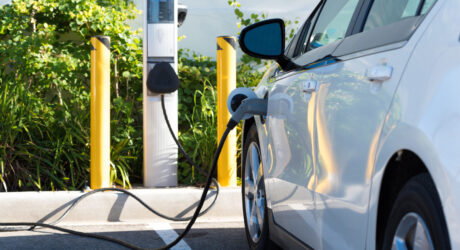
A Guide to Electric Car Batteries

EV Home Charger Installation Guide: How to Charge an EV at Home
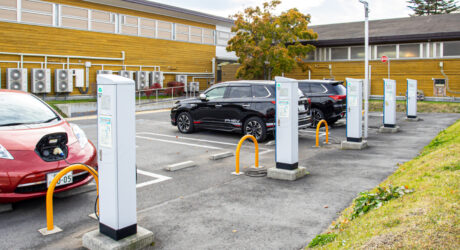
OZEV Grant: What Is It and Am I Eligible?

The Best Apps for Finding EV Charging Stations

Electric Car Home Charging Stations: The Top Ten EV Chargers for Your Home

Should I Buy a Used Electric Car?
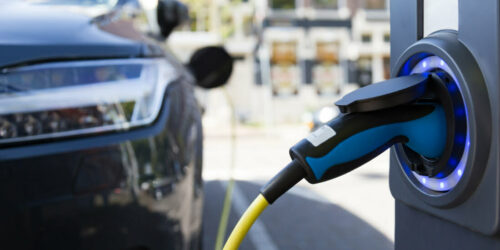
Electric Vehicle Range
